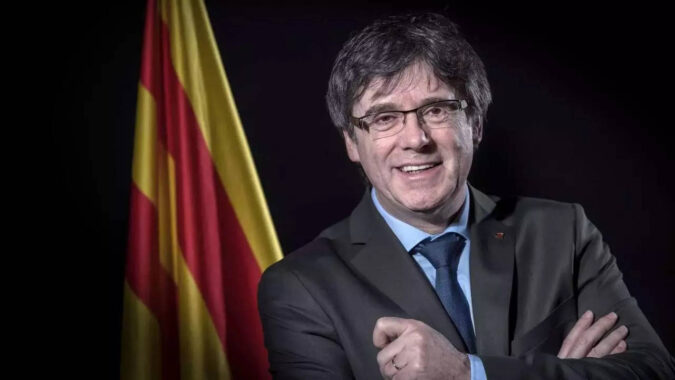The first task of the 350 newly elected lawmakers will be to vote on a new speaker for the chamber, with acting Prime Minister Pedro Sanchez proposing a candidate from his Socialist party.
That vote is widely seen as a trial run ahead of a crucial investiture vote — which determines who forms the government — expected next month.
Neither the left nor the right won the 176 seats needed to have a working majority in the July 23 general election — each side won only 171.
That is what has put JxCat in such an influential position, for how its seven lawmakers vote, both on Thursday and in the investiture vote that follows, could be decisive.
The Catalan separatists have set the bar high for their support: an amnesty for anyone pursued by the Spanish justice system over their failed 2017 independence bid and a referendum on self-determination.
If JxCat backs Sanchez’s candidate for speaker “this would be a good sign for him but by no means guarantees his appointment for another term, given substantial obstacles to meeting JxCat’s demands,” said Federico Santi, an analyst at Eurasia Group in London.
“Failure to reach a deal on the parliamentary leadership would raise the odds of repeat elections,” he added.
JxCat leader Carles Puigdemont demanded Wednesday solid guarantees before offering support to Spain’s next government.
“We have no confidence in Spanish political parties,” wrote the Catalan separatist on X, the social media platform formerly known as Twitter.
“We cannot move forward on the basis of promises made by those who always fail to keep them, so we need to see solid guarantees before committing to vote.”
Puigdemont, 60, headed the regional government of Catalonia at the time of the thwarted secession bid, which involved an illegal referendum followed by a short-lived declaration of independence.
He fled Spain shorty after to avoid prosecution and currently lives in Belgium from where he leads JxCat.
In what was widely seen as a nod to Catalan separatists, Sanchez has proposed Francina Armengol as parliament speaker.
Armengol was regional president of the Balearic Islands, where Catalan is widely spoken, from 2015 to 2023.
JxCat has not indicated whether it will back Armengol’s candidacy on Thursday.
Sanchez also pledged Wednesday to promote the use of Catalan, Basque and Galician within Europe — a long-running demand of nationalist parties.
“Spain speaks Castilian Spanish but also Catalan, Basque and Galician,” he told a gathering of newly elected Socialist lawmakers.
“We are going to promote the use (of these languages) within EU institutions in a commitment I will carry out during Spain’s presidency of the European Union,” he said of the role Spain took over on July 1.
